Humans
Sign up for our newsletter
We summarize the week's scientific breakthroughs every Thursday.
-
 Genetics
GeneticsSome people may have genes that hamper a drug’s HIV protection
Newly discovered genetic variants could explain why an anti-HIV medication doesn’t protect everyone.
-
 Health & Medicine
Health & MedicineNASA’s Twins Study reveals effects of space on Scott Kelly’s health
Ten research groups studying the twin astronauts found long-term spaceflight can alter a person’s physiology and gene activity.
By Jeremy Rehm -
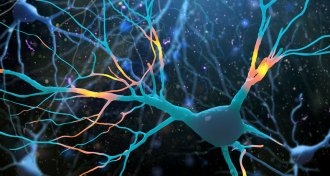 Health & Medicine
Health & MedicineKetamine cultivates new nerve cell connections in mice
In mice, ketamine prods nerve cells to connect, which may explain the hallucinogenic drug’s ability to ease depression.
-
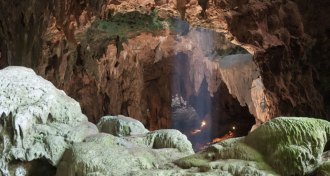 Anthropology
AnthropologyA new hominid species has been found in a Philippine cave, fossils suggest
Cave fossils found in the Philippines come from a newly discovered member of the human lineage, researchers say.
By Bruce Bower -
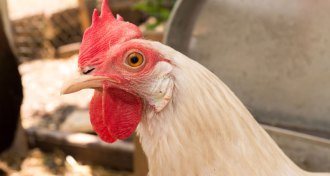 Health & Medicine
Health & MedicineChickens stand sentinel against mosquito-borne disease in Florida
To learn where mosquitoes are transmitting certain viruses, Florida officials deploy chickens and test them for antibodies to the pathogens.
-
 Health & Medicine
Health & MedicineA common food additive may make the flu vaccine less effective
A food preservative may impair the ability to fight the flu, a study in mice suggests.
-
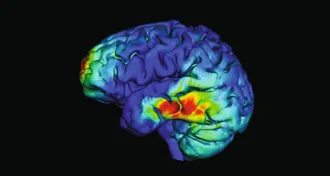 Health & Medicine
Health & MedicineWhen an older person’s brain waves are in sync, memory is boosted
A brain stimulation treatment that nudges older people’s brain waves into sync could lead to noninvasive therapies for dementia and other disorders.
-
 Health & Medicine
Health & MedicineReaders seek answers to stories about shingles, Neandertal spears and more
Readers had questions about Neandertal spears, Earth’s inner core and more.
-
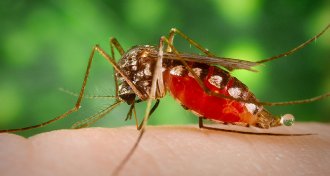 Health & Medicine
Health & MedicineTesting mosquito pee could help track the spread of diseases
A new way to monitor the viruses that wild mosquitoes are spreading passes its first outdoor test.
By Susan Milius -
 Psychology
PsychologyWhat we know and don’t know about how mass trauma affects mental health
Three people connected to mass shootings have recently killed themselves. Here’s what we know, and don’t, about the lingering effects of mass trauma.
By Sujata Gupta -
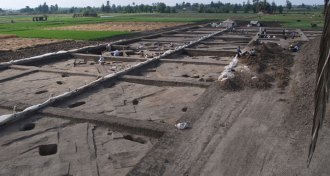 Anthropology
AnthropologyForeigners may have conquered ancient Egypt without invading it
Dental evidence suggests female Hyksos immigrants married into power.
By Bruce Bower -
 Health & Medicine
Health & MedicinePumping may be linked to an altered microbial mix in breast milk
Beneficial bacteria are more abundant in the milk of mothers whose babies feed straight from the breast.